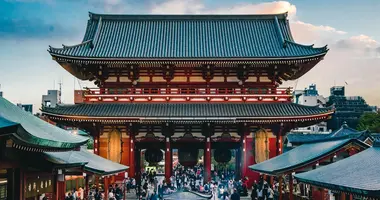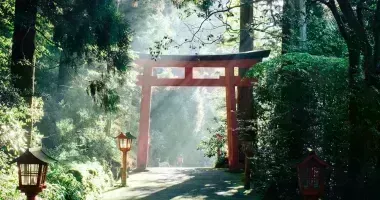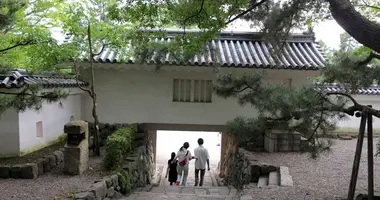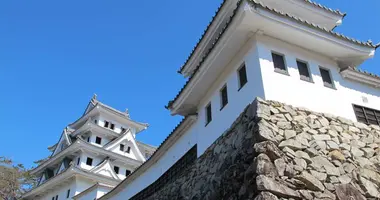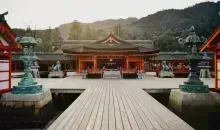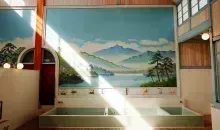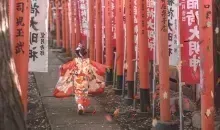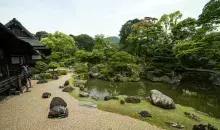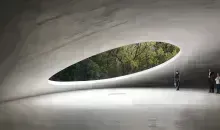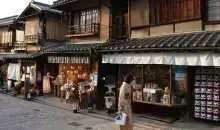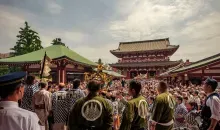Chiune Sugihara Memorial Hall
The Chiune Sugihara Memorial Hall, located in Yaotsu in Gifu Prefecture is a museum dedicated to the life and deeds of this small town's most famous son.
Chiune Sugihara Memorial Hall, Yaotsu, Gifu Prefecture 杉原千畝記念館 (八百津町)
The Chiune Sugihara Memorial Hall, located in the deep countryside of Yaotsu in Gifu Prefecture in central Japan, is a museum dedicated to the life and good deeds of this small town's most famous son.
Biography of Chiune Sugihara
Chiune Sugihara (1900-1986) was born in Yaotsu and spent his early life at schools in Nagoya before studying languages in Tokyo at Waseda University. In 1919 Sugihara joined the Japanese Foreign Ministry and was posted to Harbin in China, becoming an expert in Russian. Twenty years later Sugihara found himself as the vice-consul at the Japanese Consulate in Kaunas, Lithuania when the Second World War broke out in Europe with the German invasion of Poland.
It was here that thousands of European Jews besieged the Japanese Consulate begging for transit visas via Japan to escape Nazi persecution. Sugihara asked for advice from his superiors in Tokyo on how to deal with the escalating humanitarian crisis outside his consulate. Ignoring their orders not to issue visas, Sugihara followed his conscience and began hand-writing visas for the thousands of Jews pleading for an escape route. Sugihara's actions of issuing valid transit visas are thought to have saved the lives of around 6,000 Jews, who fled across Russia to Vladivostok and then Japan to escape the concentration camps. Sugihara continued issuing visas even as his train was leaving the railway station in Lithuania, when the consulate was closed down in 1940, and he left for a new posting in Berlin.
After the war Sugihara returned to Japan and was dismissed from his post. During the 1960s Sugihara used his Russian language skills working as a representative for Japanese companies in Moscow. It was in 1968 that he was contacted by people his actions had saved and he was honored by the Israeli government with the State Medal of Honor.
Exhibits
The Chiune Sugihara Memorial Hall presents the history of Sugihara's life using video (including English and Hebrew language versions), photographs, realia and a recreation of his office in Kaunas. Each visitor is given a blue "passport" on entry in remembrance of Sugihara's humanity. The western-style museum is pleasantly built of cypress (hinoki) trees and close by is the Bells of Peace Monument representing the piles of visas issued by Suhihara, with the words "Love", "Courage" and "Heart" engraved on the bells.
Access - Getting There
Chiune Sugihara Memorial Hall (www.sugihara-museum.jp) Yaotsu 1071 Yaotsu-cho Kamo-gun Gifu 505-0301 Hours: 9 am-5 pm; closed Monday Admission: 300 yen  Photograph of Chiune Sugihara Access: there are irregular buses from Akechi Station on the Meitetsu Line to Yaotsu and then a bus to the museum (10 minutes). Alternatively take a bus from Mino Ota Station to Yaotsu and then the same bus to the museum. By car, the museum can be reached from the Toki and Tajimi ICs on the Chuo Expressway or from the Komaki IC on the Meishin Expressway and then National Highway 41. It is a 30 minute drive from the museum to Mino Ota Station. There are trains from Mino Ota Station to Takayama that take an hour and 40 minutes. From Nagoya Station Mino Ota is an hour to 80 minutes by JR with a change in Gifu or Tajimi by local trains. The Hida Wide View Express takes 46 minutes from Nagoya Station to Mino Ota. Mino Ota Station is on the Takayama Main Line, the Taita Line and the Nagaragawa Railway Etsumi-Nan Line.
Photograph of Chiune Sugihara Access: there are irregular buses from Akechi Station on the Meitetsu Line to Yaotsu and then a bus to the museum (10 minutes). Alternatively take a bus from Mino Ota Station to Yaotsu and then the same bus to the museum. By car, the museum can be reached from the Toki and Tajimi ICs on the Chuo Expressway or from the Komaki IC on the Meishin Expressway and then National Highway 41. It is a 30 minute drive from the museum to Mino Ota Station. There are trains from Mino Ota Station to Takayama that take an hour and 40 minutes. From Nagoya Station Mino Ota is an hour to 80 minutes by JR with a change in Gifu or Tajimi by local trains. The Hida Wide View Express takes 46 minutes from Nagoya Station to Mino Ota. Mino Ota Station is on the Takayama Main Line, the Taita Line and the Nagaragawa Railway Etsumi-Nan Line.



